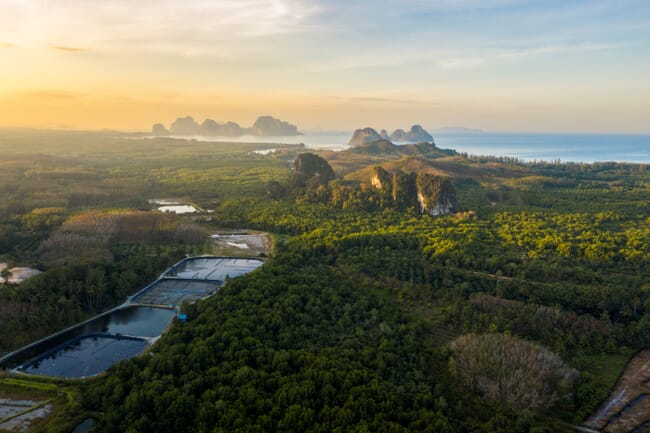
The first study, titled "Sustainability Activities in a Hard-to-Abate Industry – A Real-Life Example," was conducted by researchers at Aker BioMarine. The study provides an in-depth analysis of sustainable practices within fisheries and production, with a focus on transparency, innovation, and the reduction of CO2 emissions.
Ragnhild Dragøy, vice president of product management and sustainability at Aker BioMarine and one of the study's authors, stated that “This study is unique in that it details innovative and transparent practices in a sustainable fishery based on Aker BioMarine’s own operations, with examples of initiatives such as CO2 hotspot mapping and targeted greenhouse gas emissions reductions”.
Key initiatives from the study include:
- Sustainable utilisation of krill biomass: Aker BioMarine prioritises the sustainable use of krill biomass, ensuring that the products derived are utilised either for human consumption as omega-3 or protein products, or as feed in aquaculture, thereby minimising waste.
- CO2 hotspot mapping: By mapping CO2 emissions along its value chain, Aker BioMarine identifies specific areas where emissions can be reduced. The company found that the majority of emissions are linked to fishery operations and transportation.
- Energy consumption reduction: Aker BioMarine has implemented several initiatives aimed at reducing emissions on board its vessels. This includes the use of "Krillviz," a digital application that leverages data from drones and AI to improve decision-making during fishing operations, thereby enhancing energy efficiency.
The role of feed in sustainable aquaculture
The second study, "Minimum Dietary Level and Mix Ratio of Krill Meal and Fish Meal to Elicit Feed Intake and Growth Performance in Juvenile Penaeus vannamei," was a collaborative effort between the Instituto de Ciências do Mar (LABOMAR) and Aker BioMarine. This research provides crucial insights into the optimal inclusion levels of krill meal in shrimp diets and explores the role of ingredients in creating more sustainable and effective feeds.
Lena Burri, director of R&D for animal nutrition and health at Aker BioMarine, highlighted that feed represents a significant portion of aquaculture's carbon footprint, and using sustainable ingredients can have a substantial impact on overall operations. The shrimp feed trial demonstrated that krill meal is a sustainable marine ingredient that can enhance shrimp growth and contribute to greater aquaculture efficiency.
Key findings from the study include:
- Optimal shrimp feed inclusion levels: The study concluded that a 1.5 percent inclusion of krill meal in whiteleg shrimp diets optimises growth performance. While this study found 1.5 percent to be effective, a broader recommendation based on multiple studies is a 3 percent inclusion to ensure consistent growth performance across various aquaculture settings.
- Reduction in less sustainable ingredients: The research showed that the inclusion of krill meal allows for a reduction of up to 75 percent in the use of other, less sustainable marine ingredients, aiding in meeting sustainability targets and improving cost efficiency.
- Enhanced nutritional profile: The balanced amino acid and fatty acid profile of krill meal improved the nutritional quality of the feed, leading to better growth outcomes and increased feed efficiency.
Commitment to sustainable aquaculture
Research is a key component in advancing both the efficiency and sustainability of aquaculture. Aker BioMarine has a long-standing commitment to enhancing its scientific understanding of krill, its fishery, and the surrounding Antarctic ecosystem.
Ragnhild Dragøy emphasised that the studies demonstrate how strong performance and sustainability can coexist in the industry. She noted that initiatives like these have the potential to set higher standards and foster a collective commitment to protecting vital ocean resources.


